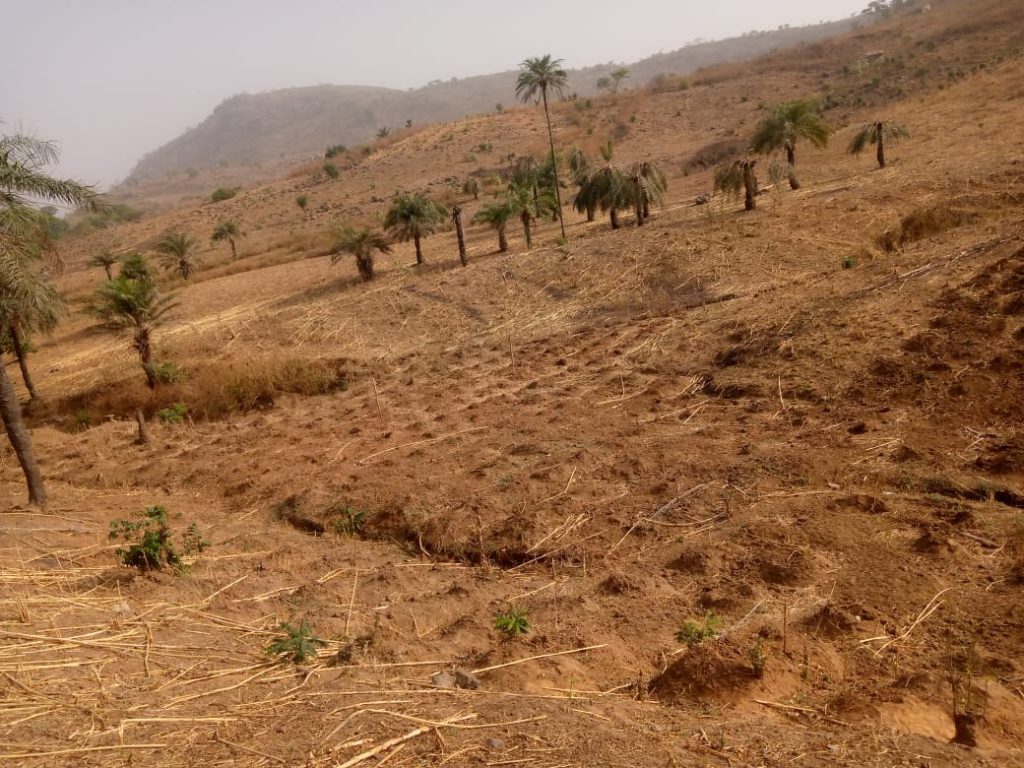Farmers in the Bmuko community in Bwari Area Council of Nigeria’s Federal Capital Territory (FCT) have continued to narrate how climate change is affecting them by reducing maize yield.
Bmuko is about one kilometre away from the Tipper Garage, opposite Dutse Mkaranta along Bwari road, and about 18 kilometres away from Abuja city centre.
On entering the Bmuko community, at about 1000 metres from the Tipper Garage, one sees a Chinese firm on the right-hand side occupying massive land full of rocks with minerals beneath it. On the road are many Lorries waiting to load and take delivery of stones and sand to customers that need them.
A few miles away, you find another major mining site on the right-hand side of the community mosque. The site has many machines excavating the rocks, while others are breaking the stones into tiny particles and dust to be sold to those who are building houses and undertaking other forms of construction.
At a Maize farm located in the Zone H area of Bmuko community, behind the Catholic Church, in a place popularly known as Angwan Fulani four farmers who spoke to MAWA-Foundation in different accounts, narrated how a change of weather leading to a shortage of rainfall has adversely affected their maize yield.
Explaining the development, Mrs. Alice Dauda, a female farmer living in the Agwan Fulani area, behind the Catholic Church at the River Side, told MAWA that they began experiencing a shortage of rainfall over 11 years ago, while it became terrible in the last three years.
She, however, narrated how her maize yield has reduced from 20 bags to less than 10 bags within the last five years.
“The change of weather is making us record poor farm yield, before now, I harvested over 20 bags of maize yearly, but since this weather change led to a shortage in rainfall, I hardly harvest 10 bags a year” Dauda Said.
Mr. Joseph Ikpi, narrating the impact of weather change on the farmers, disclosed that a notable impact it has on them is that it brings poverty and frustration to them. He pointed out that many of the farmers who depend on natural rainfall for their farms are at a loss because the weather is no longer what it used to be which is leading to a massive reduction in farm yield.
Ikpi, however, said that farmers who embraced irrigation are the ones who are not badly hit by the change of weather. But, pointed out that irrigation is very expensive and many farmers cannot afford it without support.
“Before now we usually have a good substantial amount of rainfall, but to our surprise, there is no more enough rain, which is affecting our maize farm and pushing us to poverty,” Ikpi told MAWA.
When MAWA-Foundation sought an expert opinion, Mr. Philip Zulum, a climate change expert, said the reduction in farm yield leading to farmers’ poverty is a result of climate change.
“There is the need to immediately commence teaching farmers climate change mitigation and adaption. Farmers are the worst hit, and of great concern is that they suffer a huge knowledge climate change deficit” Zulum said.
This is even as Zulum pointed out that if the government, environmental experts, and Non-Governmental Organizations (NGOs) do not rise up to the challenge of addressing climate change mitigation and adaptation, Nigeria is likely to face food shortage in the future.

